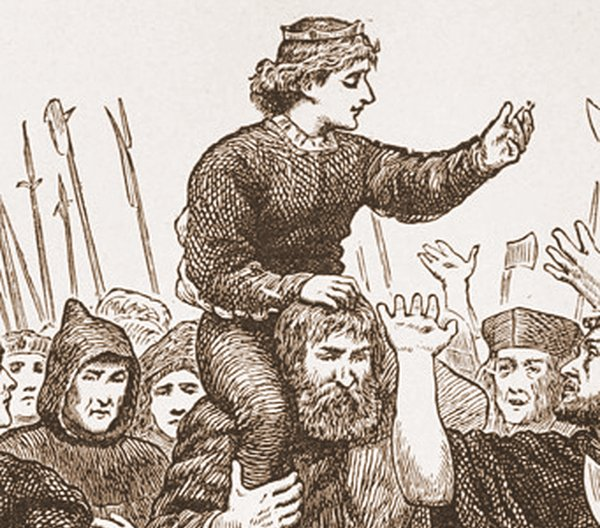Lambert Simnel and the Chef
Lambert Simnel and the Chef
The date is July 1487.
Simnel has just been captured after the Battle of Stoke Field after pretending to be the Earl of Warwick and a claimant to the throne.
King Henry VII has decided to spare his life. But he’s been forced into manual labour as a punishment.
The Facts
It's true that Lambert was just ten years old when he was captured. He was originally from Oxford. It's true that he was taught how to pass as an nobleman although that obviously didn't work out. Lambert really wasn't involved in the Battle of Stoke Field (see image 2) but watched from afar. Henry really did say that he was 'an innocent lad who was too young to have himself committed any offence' and so put him to work in his kitchens as a spit-boy as a punishment (see image 3). It was a horrible job where he would have got up at 4am and worked for 6 hours without a break. And he did at least get extra rations of beer.
It's true that the Tudor kitchens at the palace at Hampton Court produced over 800 meals a day and all the job titles mentioned are real and essential to the running of the kitchens. The description of the vast quantity of meat that was eaten in one year was true. People working in the kitchens really did get paid food as part of their wages and they did only get two meals of bread, ale, beef and veal or mutton.
Henry really did like to eat game, lamb, venison and swan and did eat conger eel or porpoise on special occasions. Meals were indeed served in the Great Hall or the Great Watching Chamber at 10 in the morning and 4 in the afternoon but the King ate in his private rooms. It is true that we get the word 'eavesdropping' from the carved wooden faces on the ceiling of a dining room to remind people that walls have ears.
The fork was new to England at this point and only the King was using one in reality at table. Everyone else ate with their fingers. the word Butler is indeed taken from the Buttery, as the man who was in charge of this area. There really was a Spicery and a Confectionery. Fish court really was set out to keep the fish as cold as possible. They really did have lots of ovens and fireplaces and got through over a million logs every year.
After working in the kitchens, Lambert did become a hawker.
Other Sources
If you want to find out more about Lambert, check out the sources and places below:
Books:
Lambert Simnel and the Battle of Stoke - Michael Bennett
The Dublin King - John Ashdown-Hill
Henry VII and the Tudor Pretenders - Nathen Amin



